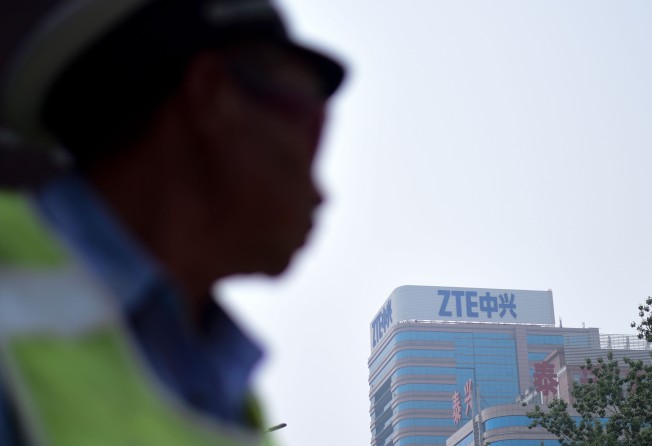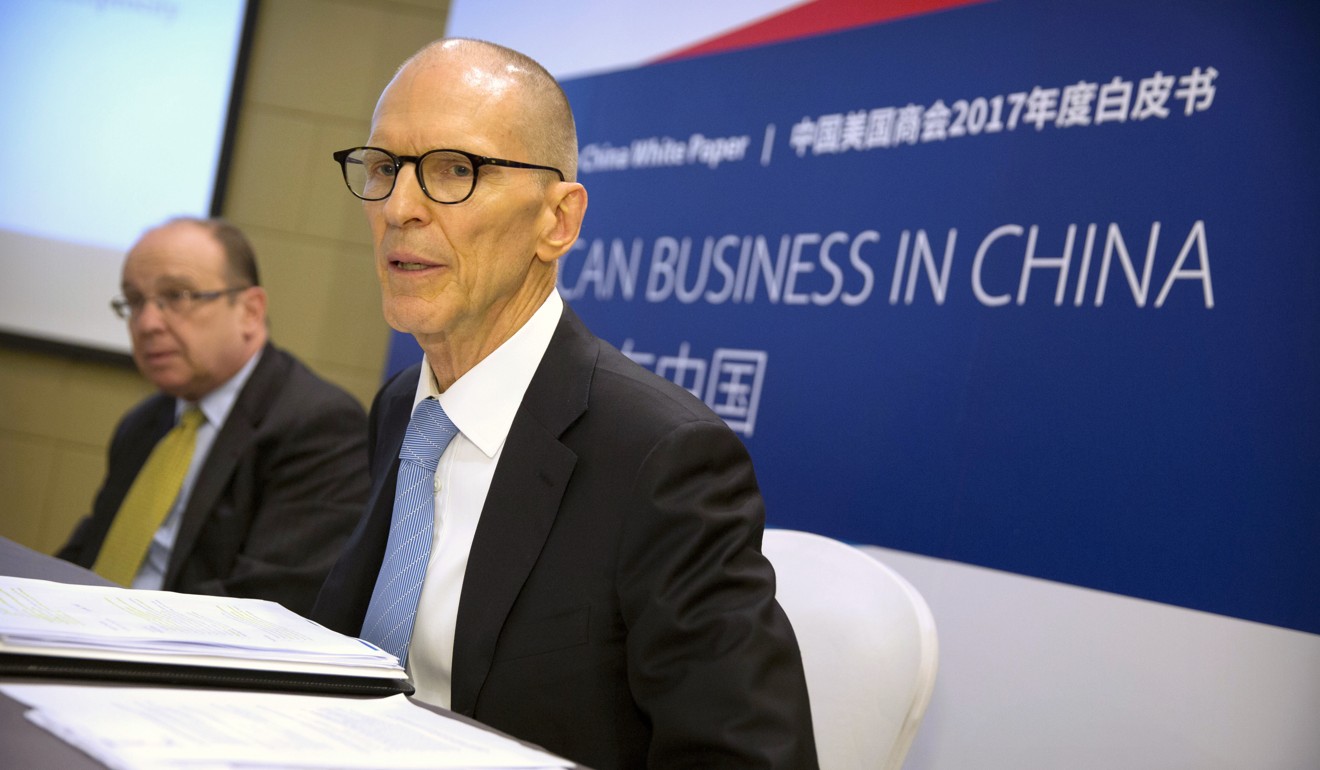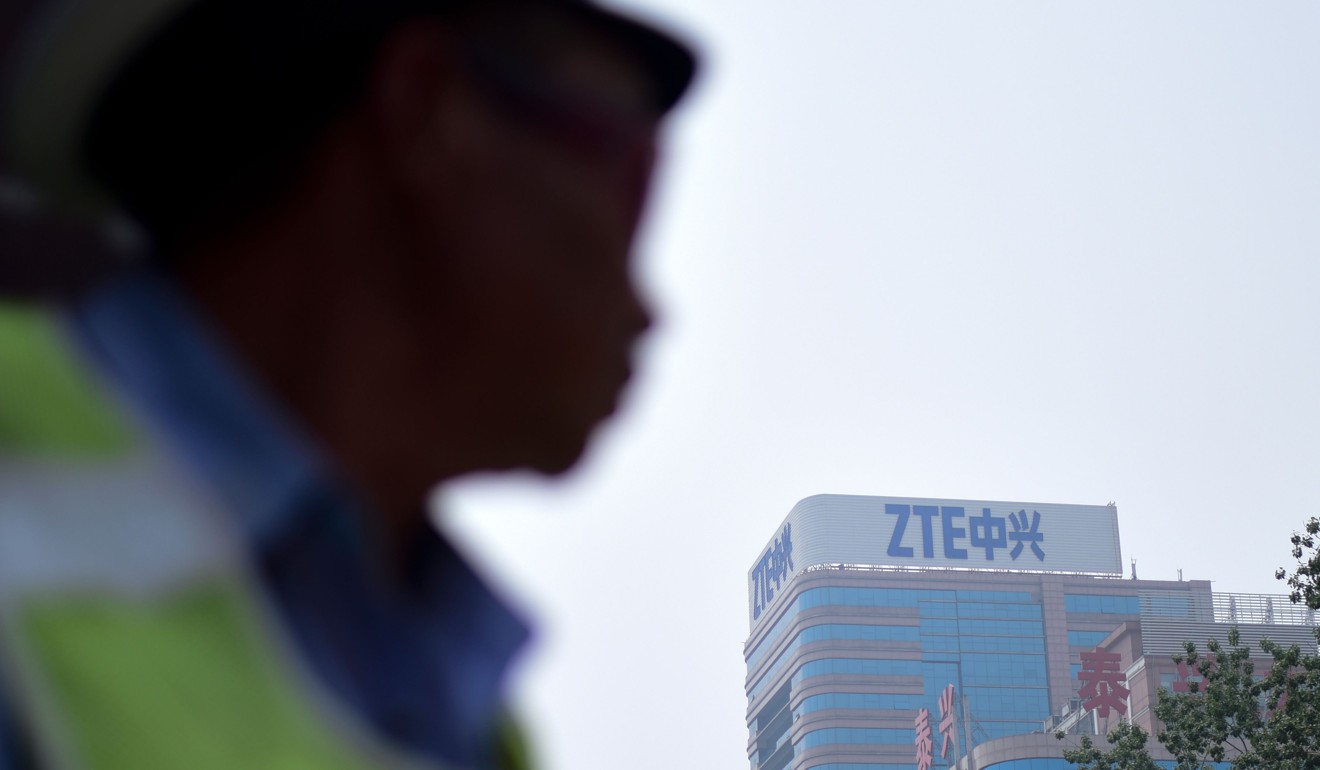Don’t stress the China trade deficit for now. Focus on getting a level playing field, say US business leaders
American Chamber of Commerce says Donald Trump’s drive to tackle the trade gap is not the most pressing concern for companies in China

American business leaders in China have urged policymakers in Washington and Beijing to focus on issues such as fairness and reciprocal treatment rather than putting too much emphasis on cutting the trade deficit in their next round of talks.
Foreign governments and companies operating in China have long complained about problems such as forced technology transfer, state support for domestic companies, rules that restrict their operations and weak protections for intellectual property.
US President Donald Trump has frequently highlighted his desire to cut the trade deficit with China, but some members of his trade team and the US business community are more concerned about issues such as China’s state-sponsored plans to make the domestic hi-tech sector a world leader while freezing out foreign companies.
US Commerce Secretary Wilbur Ross will lead a delegation to Beijing on June 2-4 to continue negotiations as the two sides try to avert a trade war.
China has previously agreed to cut its trade surplus with the US by buying more American agriculture and energy products but the details of this have yet to be clarified.
William Zarit, the chairman of the US Chamber of Commerce in China, said it would be a disappointment if the latest round of talks continued to focus on the trade deficit or prioritised the needs of certain sectors “without getting to the essence of the difference in our systems”.
In its latest white paper on American business in China released on Wednesday, the chamber said “China’s economic development has progressed along a unique path as a product of historical tradition, technological context and government intervention”.
It continued that “how to reconcile China’s government funding and protection of state-owned and state-influenced enterprises versus the American model based on market forces” was the most significant challenge between the two countries in the past 40 years.

The chamber said in its report that a fifth of its member companies said they had moved or planned to move capacity out of China due to rising costs and changes in the regulatory environment, while one third of member companies planned to expand investment in China by more than 10 per cent this year.
The chamber suggested that the Chinese government should build trust through clarity and consistency in the regulatory environment – an area listed as the top concern in the survey – because “the gap between policy as stated and as enforced remains significant”.
It also urged Beijing to improve investment access for foreign companies to ease discontent about the much freer access their Chinese counterparts enjoy overseas.
Particularly, it encouraged Beijing to open the digital sector to stimulate innovation by allowing the free flow of information.
Zarit said members of the chamber wanted the US government to “carry out sustained communication with the Chinese authorities” on regulatory compliance, hi-tech trade, legal services and energy.
Lester Ross, chairman of the chamber’s policy committee, said: “China, as the world’s second largest economy, is the market that the American firms have to compete with to maintain their global leadership and competitiveness.”
The emphasis on the trade deficit was not the smartest way to tackle friction between the two sides, he said, adding that the main efforts of the US administration should concentrate on the structural imbalance.
“We don’t want to see the transactional issues preclude progress on structural issues.”

Ross said issues of fairness and reciprocal investment had come to the forefront of trade talks more than under previous US administrations, but difficulties remained on reaching an agreement.
He said he also expected that a deal on Chinese telecoms company ZTE would be reached “in a way that does not drive China even further along the path of separation of China’s technology market from the rest of the world”, but said the business had to abide by US regulations in the way that American companies have to do in China.
The telecoms giant has been banned from importing American components for alleged breaches of sanctions on Iran, although Trump has hinted at easing these restrictions.
Zarit said the US negotiating team needed to reach a consensus among themselves on how to approach the talks following reports of clashes between trade hawks and those seeking a compromise.
He said that Wilbur Ross was not the major negotiator in the bilateral trade talks, therefore his upcoming visit was not expected to “be hugely significant in the longer term” and ruled out the likelihood of the US loosening hi-tech export controls for China.
He warned that American companies operating in China were looking to other countries to diversify their supply chains out of concerns that recent the trade tensions would affect them.
“Anecdotally I heard about companies that are already thinking about diversifying their supply chains have now been speeding up their activities,” he told a small briefing ahead of the release.